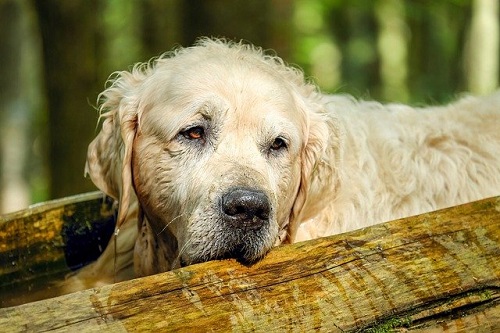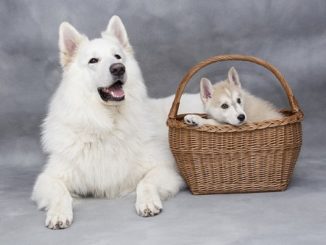Introduction
Living with a canine companion is postulated to increase physical activity. Every dog owner knows there are many benefits to having a dog, from getting themselves out for exercise to receiving loyal companionship. However, for some people with mental or emotional conditions, the presence of a dog is critical to their ability to function normally on a daily basis. The pet provides emotional support and comfort that helps them deal with challenges that might otherwise compromise their quality of life. These pets are known as emotional support animals (ESAs). Average lifespan of dog is 10 -13 years. Adult body weight ranges from 15 to 40 kg. Some smaller breeds of dog live for 15-17 years. In 21st century there are more neutral families, so dogs are an integral part of family. As age increases chances of diseases related to age increases. Feeding with balance nutrient can play an important role in the control of the ageing process by the improvement of quality of life and the prevention of some pathological manifestations associated with age. The common nutrient-sensitive conditions of older animals include obesity, weight loss, chronic renal failure (CRF) and congestive heart failure (CHF).
1. Obesity
Obesity occurs when a dog repeatedly consumes more energy than it expends. In general, a dog whose body weight is 20% or more above the normal weight is considered to be obese. Dogs who are 10% to 15% or more above their ideal weight should be placed on a weight loss programme .
- Nutritional therapy includes weight loss in the dogs and is done by using a combination of calorie restriction and an exercise programme to increase daily energy expenditure.
- According to thumb rule, an amount of food that provides 60% to 70 % of the calorie for maintenance currently will result in weight Low calorie, high fibre nutritionally balanced diet is given for weight loss.

2. Weight Loss
Weight loss is commonly seen in geriatric pets, often associated with increased or decreased intake. Various reasons of weight loss in geriatric pets mainly parasitic infestation, pancreatic diseases, renal cancer, malabsorption of nutrients especially fat malabsorption is common in liver and pancreatic diseases and diseases involving lymphatic lacteals. Other reason is decreased feed intake which may be due to competition among the group of pets in group feeding, poor dental health , appetite loss etc.
Nutritional therapy for weight loss
- Soft food in case of tooth
- Palatable foods and high- calorie nutrient dense foods are offered to compensate for less quantity of food
- Offer fresh food frequently and encourage pet to eat more food.
- Chemical appetite stimulants like benzodiazepine, diazepam , oxazepam helpful for short term use in overcoming
- Enteral or parenteral nutritional support in severe cases.
3. Congestive Heart Failure (Chf)
This is a chronic condition occurs in older pets in which it occur if the heart doesn’t pump (systolic ) or fill (diastolic) adequately.
Treatment aspect of heart failure is to reduce water retention. Restricting sodium levels encourage diuresis. Dietary sodium restriction is classified as mild (400mg sodium/100gdiet ) to severe (240mg sodium /100g diet DM ). Although dietary sodium restriction is given priority , energy intake and specific nutrients such as potassium, magnesium and taurine are of particular concern. L-carnitine is also essential nutrient in some breeds of dogs (Boxer , American cocker spaniel ) with myocardial diseases.
Taurine is recognized as an essential nutrient in the cat but not in the dog. In cardiac patients hepatic congestion, portal hypertension, pulmonary congestion may occur which lead to decreased GI functions and respiratory acidosis. Pulmonary congestion increases the work of breathing, greatly increasing the energy spent for this purpose. Severe congestion and dyspnea also contributes to anorexia. Anorexia coupled with decreased gastrointestinal functions that are decreased ability to digest and absorb nutrients, urinary loss of nutrients and greater energy expenditure may contribute to cardiac cachexia which causes additional risks for patients with heart diseases.
Nutritional Therapy for Congestive Heart Failure
- Calorie intake of the cardiac patients with either obesity or cachexia needs to be monitored
- Obesity must be controlled to reduce the workload on the
- Highly digestible, high calorie diets should be offered several times in a day to cachectic patients to help enhance calorie absorption.
- Diets should have surplus amounts of B-complex vitamins and minerals to compensate for losses induced by diuretics. Patients with CHF should not be fed acidifying diets because of likelihood of acidiosis in CHF and the link between acidifying diets and depletion of both taurine and potassium .
- Oral supplementation of taurine and L – carnitine are quite beneficial in certain breeds of dogs with
4. Chronic Kidney Diseases
CKD is a condition characterized by a gradual loss of kidney function over time in older dogs .sign of CKD is of increased water consumption and increased urination. Calcium and phosphorus homeostasis are negatively affected in dogs with renal diseases.
Nutritional therapy for chronic kidney disease
- Energy should be supplied primarily via feeding more digestible fat and
- Restrict dietary protein when there are clinical signs of uremia and blood urea nitrogen (BUN) is greater than 60 mg /
- A diet that contains high quality protein and adequate level of non protein calories from fat and carbohydrate should be Diets with protein 2g protein / kg body weight and phosphorus restriction to less than 0.4% of dry matter should be used to bind the intestinal phosphorus if needed to control the phosphorus level in blood .
- Daily supplementation of vitamin B-complex and vitamin C required in polyuria conditions because an excessive loss of these vitamins occurs through urine.
Conclusion
Proper nutrition with a well-balanced diet throughout life according to life stages and lifestyle helps ensure that aging process proceeds as healthy as possible. Lower calorie density to prevent weight gain and digestible protein to help in maintaining good muscle mass, Antioxidants like vitamin E and beta -carotene help in immunity in dogs and omega-6 fatty acids that plays a role in maintenance of healthy skin and coat of geriatric dogs.






Be the first to comment